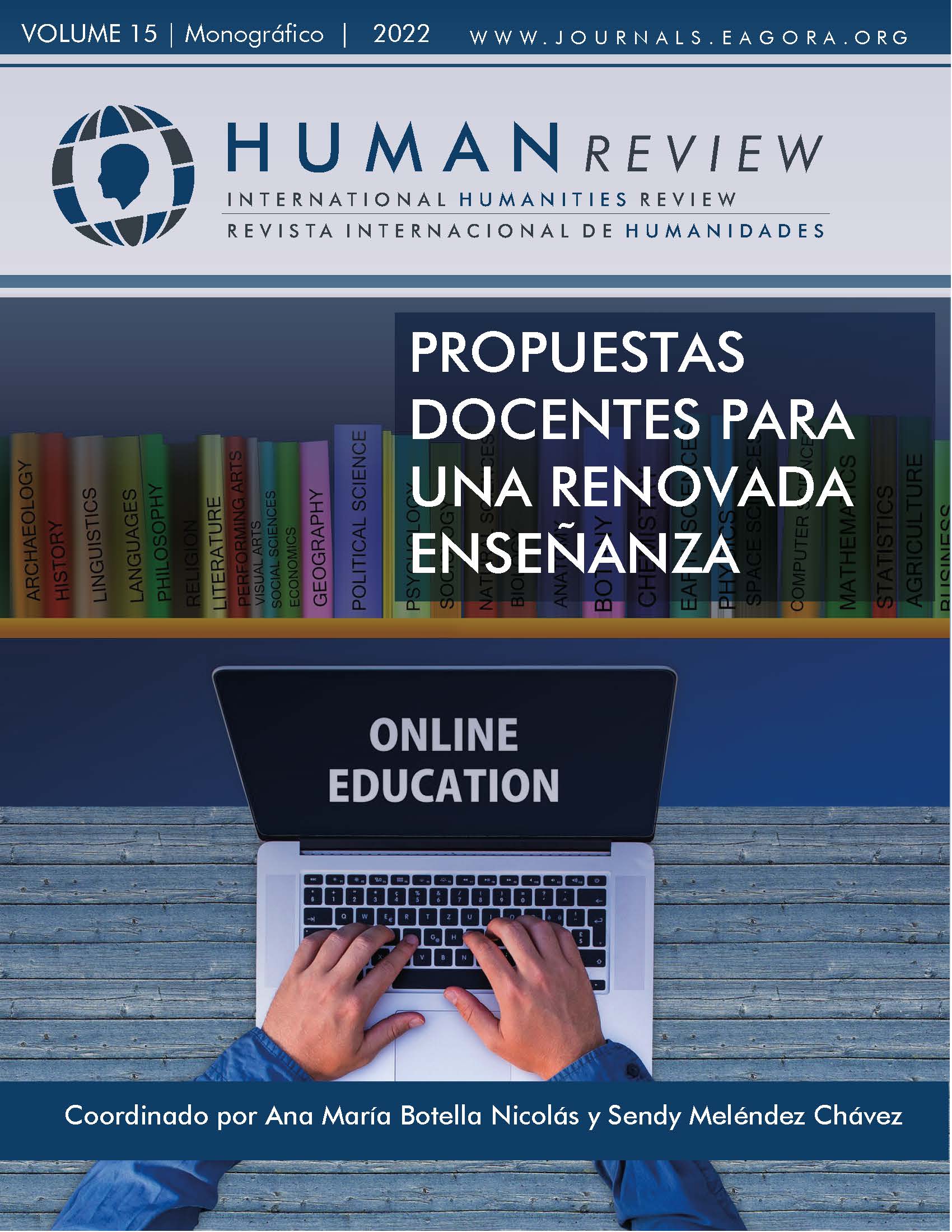Breve nota sobre el engaño a los exámenes y el plagio en línea, y posibles soluciones
DOI:
https://doi.org/10.37467/revhuman.v11.4232Palabras clave:
Exámenes Orales, Plagio, Cursos Online, Integridad AcadémicaResumen
Los eventos recientes, al hacer necesarias las clases y los exámenes en línea, están aumentando las prácticas de plagio y trampa entre los estudiantes. Ofrezco estrategias para hacer frente a ambos temas en juego. Sostengo que las instituciones y los educadores no solo deben enfocarse en cómo detectar malas prácticas y castigos, sino en prevenir conductas despreciables a través de la construcción de un sistema educativo más sofisticado.
Citas
Ashworth, P. D. (2000). Qualitative research methods. Estudios pedagógicos, (26), 91-106.
Ashworth, P., Bannister, P., Thorne, P., & Students on the Qualitative Research Methods Course Unit. (1997). Guilty in whose eyes? University students‘ perceptions of cheating and plagiarism in academic work and assessment. Studies in higher education, 22(2), 187-203.
Baker, R., Papp, R., Academic Integrity Violation in the Digital Realm, Proceedings from the Southern Association for Information Systems 2003 Annual Conference, 193-202, 2003.
Born, A. D. (2003). Teaching tip: How to reduce plagiarism. Journal of information systems education, 14(3), 223.
Bowers, W. J. (1964). Student dishonesty and its control in college. Bureau of Applied Social Research, Columbia University.
Carlson, R., Assessing Your Students: Testing in the Online Course, Syllabus, 12(7), 16-18, 2000.
Cox, K.R. (1982). How to improve oral examinations, in: K.R. COX & C.E. EVANS (Eds), The Medical Teacher (Edinburgh, Churchill Livingstone).
Deale, R.N. (1975) Assessment and testing in the secondary school. Schools Council Examinations Bulletin, 32 (London, Evans/Methuen Educational)
Davis, S. F., Grover, C. A., Becker, A. H., & McGregor, L. N. (1992). Academic dishonesty: Prevalence, determinants, techniques, and punishments. Teaching of Psychology, 19(1), 16-20.
Davis, M. H., & Karunathilake, I. (2005). The place of the oral examination in today‘s assessment systems. Medical teacher, 27(4), 294-297.
Fox, H. (1994). Listening to the world: Cultural issues in academic writing. National Council of Teachers of English, 1111 W. Kenyon Road, Urbana, IL 61801-109
Gibbs, H., Habeshaw, S. & Habeshaw, T. (1988) Interesting Ways to Teach: 53 Interesting Ways to Assess your Students (Bristol, Technical and Educational Services).
Larkham, P. J., & Manns, S. (2002). Plagiarism and its treatment in higher education. Journal of Further and Higher Education, 26(4), 339-349.
Le Ha, P. (2006). Plagiarism and overseas students: Stereotypes again?. ELT journal, 60(1), 76-78.
Lea, M. R., & Street, B. V. (1998). Student writing in higher education: An academic literacies approach. Studies in higher education, 23(2), 157-172.
Liu, D. (2005). Plagiarism in ESOL students: Is cultural conditioning truly the major culprit?. ELT journal, 59(3), 234-241.
McCabe, D. L. (1992). The influence of situational ethics on cheating among college students. Sociological inquiry, 62(3), 365-374.
McCabe, D. L., Trevino, L. K., & Butterfield, K. D. (2002). Honor codes and other contextual influences on academic integrity: A replication and extension to modified honor code settings. Research in higher Education, 43(3), 357-378.
Park, C. (2017). In Other (People‘s) Words: plagiarism by university students—literature and lessons. Academic ethics, 525-542.
Sandars, J. (1998) MRCGP: approaching the New Modular Examination Approach to the Oral Examination Component (Cheshire, Pasttest).
Scanlon, P. M. (2003). Student online plagiarism: how do we respond?. College Teaching, 51(4), 161-165.
Scanlon, P. M., & Neumann, D. R. (2002). Internet plagiarism among college students. Journal of College Student Development, 43(3), 374-385.
Sowden, C. (2005). Plagiarism and the culture of multilingual students in higher education abroad. ELT journal, 59(3), 226-233.
Vernon, R. F., Bigna, S., & Smith, M. L. (2001). Plagiarism and the Web. Journal of Social Work Education, 37(1), 193-196.
Wakeford, R., Southgate, L. & Wass, V. (1995) Improving oral examinations: selecting, training and monitoring examiners for the MRCGP, British Medical Journal, 311, pp. 931–935.
Wass, V., Wakeford, R., Neighbour, R. & Van Der Vleuten, C. (2003) Achieving acceptable reliability in oral examinations: an analysis of the Royal College of General Practitioners membership examination’s oral component, Medical Education, 37, pp. 126–131.
Descargas
Publicado
Cómo citar
Número
Sección
Licencia
Aquellos autores/as que publiquen con esta revista, aceptan los términos siguientes:
- Los autores/as conservarán los derechos morales sobre la obra y cederán a la revista los derechos comerciales.
- Transcurrido 1 año desde su publicación, la versión del editor pasará a estar en acceso abierto en la web de la editorial, pero la revista mantendrá el copyright de la obra.
- En el caso de que los autores deseen asignar una licencia abierta Creative Commons (CC), podrán solicitarla escribiendo a publishing@eagora.org.








